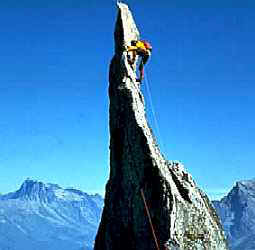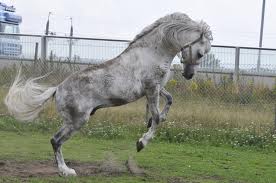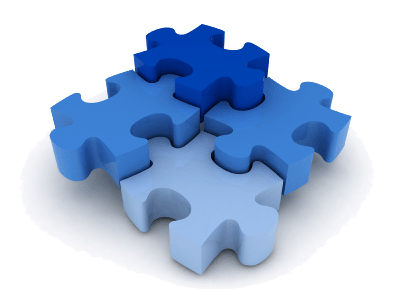
by Julia Felton | May 6, 2011
So apologies for not blogging much (at all) last month but time just seemed to fly by. With the weather improving I have managed to spend more time with the horses and as usual they have been teaching me more lessons than sometimes I wanted to learn.
The first lesson I have been reminded of by my horses is for the need to plan ahead (perhaps if I had done that I might have managed to get in the odd blog). Last month my horses threw me a few curve balls by all getting sick at the same time when I was away teaching in Dorset. Maybe if I had had some contingency plans(a Plan B) things would have been less stressful for us all. When faced with challenges such as I experienced my practical side takes over and I just get on with things, but what I was reminded of is how for others that transition is not so easy. They find it difficult to move to plan B and whilst I moved there quite effortlessly my inability to communicate clearly to them made this transition challenging. Maybe if I had planned ahead more, then things would have been easier for everyone.
I recently came across this acrostic from John C. Maxwell regarding the importance of planning ahead which I just love.
P – predetermine your course of action
L – lay out your goals
A – allow time for adjustments
N – notify key personnel
A – allow time for acceptance
H – head into action
E – expect problems
A – always point to the positive
D – daily review
I think this sums up so brilliantly the best way to approach anything in life. Particularly it reminds me that we should expect problems. That’s normal but all too often we get discouraged and give up. Focus on the positive at all times because when we are immersed in a project we all too often forget to acknowledge all the success that we have had along the way. A daily review is a great way to keep on track but at the end of the day all great plans will stay that way unless you take action. I’m reminded of John Assaraf once telling me “are you taking action Julia or are you living on hopeium”. We are hope for anything we want but unless we take action to translate those plans into something nothing will change.
So my question for you today is are you living a Hopeium Life or are you taking action to PLAN AHEAD. As always comments are welcome.
Julia Felton (aka The Business Wrangler) is the founder of Business HorsePower. Business leaders, entrepreneurs and executives hire her to accelerate their business performance by harnessing the energy of their people to work more collaboratively together. By aligning purpose with actions the team achieves exponential results as everyone starts pulling in the same direction.
Julia believes that business is a force for good and through designing purpose-driven businesses that leverage the laws of nature, and the herd, you can create businesses founded on the principles of connection, collaboration and community that make a significant impact in the world.

by Julia Felton | Mar 30, 2011
As Spring breaks, the days get longer and daffodils begin to blossom I am reminded of the first time I learnt about the concept of expansion and contraction from Chris Attwood at the Masters Gathering in San Diego in June 2009. In essence what Chris said is that at every point in life there are expansion and contraction points. Just think of the seasons. Spring and Summer are the seasons of expansion (growth and development) whilst Autumn and Winter are seasons of contraction (of slowing down and resting). Just like the Ying Yang one can’t exist without the other and so it is in business.
There are times when your business flourishes and grows and times when it stagnates (to recuperate and rest). The challenge for most of us is when the contraction happens we give up, but this is just one of nature’s cycles. Roger Hamilton summarises this analogy in his book “Wink”. There is a season for planting and a season for reaping. Furthermore, he goes on to discuss the Law of Gestation. The seeds you plant must be given time to develop and mature before you can harvest them. How often in business do we get impatient and reap too early? I know I do. So as we move into Spring consider your business life cycle and make sure you don’t pull up your seeds before they are ready.
Recently I have been rather busy and not paying my lovely ponies Bracken and Thistle the attention they deserve. I’m been rushing, never stopping – acting in an expansive state. The one sure thing that Thistle has been teaching me is to slow down and wait. What I cause the pause. She does this by stopping when I lead her to the field. She just plants her feet and refuses to move until I slow down. The more I try to encourage her forward the more stubborn she becomes. I now realise if I pause (take a breath) and wait she will then move forward. So leading her has become a game – like the ebb and flow of the sea.
All too often in life out of desire for instantaneous results and goal orientation means that we fail to pause. To survey what is around us and reflect on what is happening. Thistle has been teaching me the value of this because it is in the pause that great magic can occur. How and when will you pause today?
Julia Felton (aka The Business Wrangler) is the founder of Business HorsePower. Business leaders, entrepreneurs and executives hire her to accelerate their business performance by harnessing the energy of their people to work more collaboratively together. By aligning purpose with actions the team achieves exponential results as everyone starts pulling in the same direction.
Julia believes that business is a force for good and through designing purpose-driven businesses that leverage the laws of nature, and the herd, you can create businesses founded on the principles of connection, collaboration and community that make a significant impact in the world.

by Julia Felton | Mar 10, 2011
Last night I attended an amazing Scanners event hosted by John Williams and Selina Barker – if you have never been along I would thoroughly recommend it, especially if like me you have loads of ideas but can’t seem to get started on any. One of the subjects we were discussing was time management. Now you might think this is a boring topic but not the way that John and Selina describe it. If like me the thought of getting started on a new project is so over-whelming that you never start, then Selina gave us this great idea. She called it Micro-Blocking and the premise is that if you clear your diary for 20 mins and just work uninterrupted on that one thing you will be amazed at how much you can achieve. You see, 20 mins is achievable for most of us, and usually it is the getting started that is the problem. So if you think you only have to do the task for 20 mins you are more likely to commit to this – and as we all know some action is better than no action.
One of my challenges however, having put that appointment in the diary with myself is actually keeping it. Just writing this blog is taking me way too long as I am continually being interrupted. Whose fault is that? Selina summed this up well by saying are you being pro-active in managing you life or are you being re-active and just responding to the environment around you. I remember well one of my coaches saying that you create the environment around you. Here I am creating an environment of chaos by being so reactive.
So what does this have to do with Horse Lessons for Life? Well it reminded me of the question on the home page of my Equine Inspired Leadership website “Are you leading your life or is your life leading you?” We all have the ability to be leaders of our lives and yet few of us do. We allow ourselves to become wrapped up in the situation around us, re-acting to everyone elses stuff and not taking control of our own destiny. Horses show us how to be leaders of our own lives and give us feedback on how we are doing. I discussed how they do this in a previous blog.
So for today please let me know whether you are leading your life and being pro-active or is your life leading you as you react to the circumstances surrounding you.
Julia Felton (aka The Business Wrangler) is the founder of Business HorsePower. Business leaders, entrepreneurs and executives hire her to accelerate their business performance by harnessing the energy of their people to work more collaboratively together. By aligning purpose with actions the team achieves exponential results as everyone starts pulling in the same direction.
Julia believes that business is a force for good and through designing purpose-driven businesses that leverage the laws of nature, and the herd, you can create businesses founded on the principles of connection, collaboration and community that make a significant impact in the world.

by Julia Felton | Mar 6, 2011
You know when you hear something more than once in a few days you really should check in it, well that’s just happened to me. On Thursday at the Academy of Chief Executives Mark Fritz was talking to us About the Power of Ownership in Leading Across Distances and Cultures and during his amazing seminar he told us we should check out a TED video by Simon Sinek on Leadership. Then I find out my friend Jezz Moore, from Moon Cow, has tweeted the same thing. Synchronicity working or what, but given I’ve been hit with with twice in as many days I felt compelled to watch the video. You can see it here at:
http://www.ted.com/talks/simon_sinek_how_great_leaders_inspire_action.html
What inspired me most about this video was the fact that we all need to begin with our WHY. For the last few years I’ve been told by many mentors and coaches that WHY is the most important thing. When you are clear on your WHY then all subsequent actions like HOW and WHEN will fall into place. Personally, I’ve been struggling to find my WHY – although day by day it becomes clearer. One of my coaches has told me that reason for my inaction is that WHY is not strong enough. One thing that I have observed is that many of the great teachers and successful business people in this world have really strong WHY’s, in many cases driven from a state of despair due to financial ruin or serious health concerns. I find it kind of sad that it takes a serious personal experience for people to become clear on what their WHY is. Surely we don’t need to all reach these depths of despair to be successful.?
What Simon Sinek so clearly articulates in this video is the Golden Circle that starts at the centre with WHY, then contains another concentric circle with HOW and finally a concentric circle with WHAT.

Sinek suggests that really successful organisations and people (such as Apple) start with their WHY. They inspire others to do business with them because they have the same beliefs. Apple do not pitch their advertising based on WHAT they do but rather WHY they do it. This is why they can sell computers, phones and music and no-one doubts the authenticity of the company. Compare this to Dell who like many other companies focus their advertising strategy of the WHAT. Dell make computers and now we are so embedded with the fact that this there is core competency that we can’t conceive of purchasing same a phone or and MP3 player from them.
Furthermore Sinek goes on to explain that purchasing decisions are based on biology not psychology and that the WHAT appeals to the neo-cortex of the brain which controls rational thought whereas the WHY and HOW align with the limbic system The limbic system is concerned with trust and loyalty and decision-making that drives behaviour. So by appealing to a consumers WHY you instantly put them in a place where the buying decision can be influenced by the limbic brain.
So how does this lead onto today’s lesson from the horses. It is just that when a horses meets you he is asking three things:
- who are you
- what do you want; and
- how do you operate.
In this way he is concerned with what is happening in our limbic brain. A horse is also always looking to us to determine our ability to lead. Are we trustworthy and reliable? From this state of why the horse can quickly make that decision on how best to interact with us. Maybe this is why horses are so good as Teachers. They make sure we stay out of our thinking, rational neo-cortex brain and force us to be congruent with who we really are. They challenge our WHY and who we think we are. Invariably in coaching sessions clients have AHA experiences as they realise who they thought they were and how they are acting are incompatible. Horses challenge our WHY are therefore our integrity and congruence and since they are non-judgemental they just feed back what they experience. It can be an eye-opening experience for most people.
So for today spend some time considering what is your WHY. Why are you on this earth and what is your purpose in life. If you need some help here some great resources that I have found really helpful are The Passion Test by Chris and Janet Attwood and Success DNA Detector which can be found on http://www.authorityformula.com/
I’d love to hear your comments below on what your WHY is.
Julia Felton (aka The Business Wrangler) is the founder of Business HorsePower. Business leaders, entrepreneurs and executives hire her to accelerate their business performance by harnessing the energy of their people to work more collaboratively together. By aligning purpose with actions the team achieves exponential results as everyone starts pulling in the same direction.
Julia believes that business is a force for good and through designing purpose-driven businesses that leverage the laws of nature, and the herd, you can create businesses founded on the principles of connection, collaboration and community that make a significant impact in the world.

by Julia Felton | Feb 22, 2011
Today’s blog is inspired once again by the behaviour of some horses and the wise words of John Assaraf. I’m currently following John Assaraf’s the Inner Game of Money programme which involves re-conditioning the neural pathways of the brain to be more accepting of money. Research has shown that our outer circumstances are dictated and created by our inner being, belief and thoughts. So if you believe that you should be poor you will be poor. However, by focusing on being wealthy you can attract wealth creating opportunities into your life. This is a 90 day programme and I am on day 69.
On one of the audio tracks John describes the tenacity of young children. They set their sights on a goal and do everything in their power to achieve it. Obstacles are no problem as children just overcome these any way they can. Ironically despite the fact that adults have many more resources available to them they seldom have the tenacity and determination that children do to achieve their goals. When I first heard this I was mesmerised by this observation as it is so true. As adults we see all the barriers and reasons why we should not do something rather than look for creative and innovative ways to solve the challenge. It’s as if ignorance as a child is bliss as you are unaware that something is not possible. Indeed if you believe that something is impossible you create that reality and indeed it is impossible.
This reminds me of a story I heard once of a young man who turned up late to a maths class. On walking in late he saw two maths problems on the board and thinking they were homework he wrote them down and then fastidiously worked on solving the problems. A day or so later he went to his teacher and delivered to him the answers to the questions. The teacher was dumbstruck. You see the two maths problems on the board were not homework but rather examples on unsolvable problems. The young man being unaware of this fact, and having no preconceived idea that the problems were not solvable had approached the challenge in a different manner and been successful. How often in life do we fail to achieve things because we believe that they are not possible. Who put that mindset out there for us to use as our reference point. In fact ignorance can on many occasions equate to bliss as you have no limitations on what is possible.
So back to my horse lesson. This was so funny it made me laugh out loud. You see I have recently adopted two ponies that had been left abandoned to roam on the roads. I’ve called them Thistle and Bracken and they now form part of my little herd, at least until they have gained some trust in people again and have been given the skills to be safe,child friendly ponies. Well Thistle and Bracken are young, maybe a year old at most and they are currently grazing in a roped off area of field within one of my larger pastures. The grass in their area is good but the grass on the other side of the fence is much better. So this afternoon when I went to get the ponies in they decided to go for a run. They galloped round and around the field, their energy ever-increasing. As they galloped towards the electric fence (a natural barrier to the lush grass on the other side) my heart was in my mouth. I was worried they might crash into the fence although instinctively I knew they would probably skid to a stop. How wrong was I. Seeing the electric fence Bracken effortlessly jumped over it. The fence was at least a metre high and Bracken can’t be more than taller than that. Bracken clearly hadn’t seen the fence as a barrier to the lush grass but rather as an obstacle to be overcome, however that might be. Thistle however took a different approach ploughing straight through the fence and breaking it. It was so heartwarming to see these little ponies being so tenacious in their quest for the best grass. They had no pre-conceived ideas that they could not get over or through the fence and so faced with a challenge tenaciously moved forward. I would suggest that tenacity is perhaps the magic ingredient missing from the lives of many adults today. What do you think?
Julia Felton (aka The Business Wrangler) is the founder of Business HorsePower. Business leaders, entrepreneurs and executives hire her to accelerate their business performance by harnessing the energy of their people to work more collaboratively together. By aligning purpose with actions the team achieves exponential results as everyone starts pulling in the same direction.
Julia believes that business is a force for good and through designing purpose-driven businesses that leverage the laws of nature, and the herd, you can create businesses founded on the principles of connection, collaboration and community that make a significant impact in the world.

by Julia Felton | Feb 20, 2011
Yesterday I was fortunate to have the opportunity to attend an Equine Facilitated Learning training day with Andrew McFarlane of LeadChange. Andrew has been one of my mentor during the last year whilst I have been establishing Connect-2-Success, my own Equine Inspired Leadership programme. These days are great opportunities to connect with others in this niche sector and also to get some great coaching from the horses.
As readers of my blog will know I believe that horses can be the best teachers of life lessons and yesterday was no exception. Whilst being coached I decided my main coaching outcome was to have fun. I’m acutely aware that running my own businesses I get so wrapped up in what is happening that I forget to enjoy the journey. I remember once my equine mentor Carolyn Resnick telling me “Make sure you enjoy the journey Julia as the destination may not be all you had hoped it will be, and therefore you will be disappointed”. How often do we focus on the end result (destination) and fail to enjoy the process? I know in my experience all too often especially when I was working in a corporate role. We become transfixed by the outcome and fail to notice the successes and achievements along the way. We become tunnelled vision and derive no pleasure from the process. How unfulfilling and boring life can be if we live this way.
So back to my coaching session. There I was intent on having fun with this pony called Prince, and he was well up for having fun too, we were running round the arena like a couple of kids and enjoying ourselves. Suddenly, Andrew asked me to get Prince to half pass along a pole that was on the ground. This meant I needed to get the horse to move horizontally across the pole from left to right. The pole was between Prince’s back and front feet and he needed to cross his back legs and then his front legs so he could move horizontally – no mean feat. I had no idea if Prince (or indeed if I could do this) so I immediately went into task mode. Dissecting the movement into steps and asking for his hind feet to move and then his front feet. Much to my surprise we managed to half pass half the pole and I was delighted. Then Andrew asked me “How much fun was that?” In all honesty, none. My desire to prove I can do the task meant that I forgot about having fun. Reflecting back on my life I realise that virtually every time I focus on a task I forget to have fun. And let’s face it what use is living if there is no fun. So my mantra for this month is to ensure that I have fun in whatever I’ve doing.
Maybe it’s no surprise that I currently enrolled in a programme called “Screw Work, Let’s Play”. It’s all about doing what you love and having fun doing it. For the next 30 days we have to execute a play project – something we love to do and have fun with – that stretches us. Before my experience with Prince I had come up with an idea to write an e-book but now I realise I only chose that because it is something I need to do, not because it will be fun. So I’m back to the drawing board to figure out what fun looks like for me. So whatever you are doing, make a wise choice and have fun doing it because I’m sure you might regret it if you don’t.
I’d love to hear your comments on what constitutes fun for you.
Julia Felton (aka The Business Wrangler) is the founder of Business HorsePower. Business leaders, entrepreneurs and executives hire her to accelerate their business performance by harnessing the energy of their people to work more collaboratively together. By aligning purpose with actions the team achieves exponential results as everyone starts pulling in the same direction.
Julia believes that business is a force for good and through designing purpose-driven businesses that leverage the laws of nature, and the herd, you can create businesses founded on the principles of connection, collaboration and community that make a significant impact in the world.

by Julia Felton | Feb 12, 2011
Todays blog has been inspired by one of my clients that I was coaching this week. Let’s call the client Susan. Well Susan had just had a big row with her partner and as a result was feeling sad and angry. She just wanted to left alone and so she decided to go for a walk. There was light drizzle in the air and she ambled around the farm that she called home. She could hear the bird song in the background as her mind replayed the argument in her head. She was upset by how she had let her boyfriend manipulate her again and make her feel unworthy.
Without thinking her walk ended up taking her to the field where her horses lived. Susan heart lifted at the sight of her horses grazing silently in the field. Part of her wanted to join their herd for the safety and security they brought and yet at the same time she felt anxious about letting her horses see her when she was in this emotional state. Susan had always been taught that she needed to be strong around her horses and display strong leadership. She did not want to bring them the negative energy that she was experiencing and yet her feet drew her into the field. She climbed the fence and then found a log and sat down, sharing territory with her horses, something she had done many times before.
For two weeks Susan had been sharing territory with her horses and they had just ignored her. They acknowledged her presence as she entered the field but just kept themselves to themselves, grazing quietly and never interacting with her. However, today things were very different. After ten minutes her trusted elder horse came over, totally unprompted, and just stood next to Susan. Susan said it was just as if the horse knew she needed support and was totally willing to be there for her with no expectation. For Susan the realisation came that she did not always need to be strong but could show vulnerability and that was fine.
Susan’s story touched me profoundly as I recalled how many times in the past I have put on that armour of bravery when in fact I was in need of help. I’ve seen this happen numerous times in the corporate world, particularly leaders, who often think they should have all the answers. Well the reality is that when we let out guard down and show people that as leaders we too are vulnerable we can drastically improve our likeability to others. Somehow we are no longer aloof, we become approachable human-beings and this helps us form connections with others.
So my thought for today is that if you are feeling vulnerable do not think that this is necessarily a sign of weakness. Share your concerns and fears and you might be amazed at the level of support that you will receive. As always I’d love to hear your comments.
Julia Felton (aka The Business Wrangler) is the founder of Business HorsePower. Business leaders, entrepreneurs and executives hire her to accelerate their business performance by harnessing the energy of their people to work more collaboratively together. By aligning purpose with actions the team achieves exponential results as everyone starts pulling in the same direction.
Julia believes that business is a force for good and through designing purpose-driven businesses that leverage the laws of nature, and the herd, you can create businesses founded on the principles of connection, collaboration and community that make a significant impact in the world.

by Julia Felton | Feb 1, 2011
Life lessons come in many forms and this week has been no exception. All week we have been introducing the three horses in our herd to two new friends. They have been meeting daily over the fence like getting to know each other before we eventually put all five horses in the field together. Watching their behaviour over the past few days has been amazing. My older horse, Toby, who is currently the leader of his group, has been over-dominant with the new horses. Snorting and really establishing himself as the head honcho in charge of everything. He has actively been stopping his best friend, Charlie, engage in any way with the other horses. It has been so tiring watching him all day preventing Charlie from going near the other horses. He has to be aware all the time where Charlie is and then move him in the other direction. Charlie, I sense, is really bord of this but quietly acquiesces as he is not the type of horse to engage in confrontation.
There antics remind me strongly of the challenges that come about when two companies integrate. One group often wants to dominate and acts in an assertive fashion whilst the other group complies, not having the strength for the battle right now. Like Charlie they decide to go with the flow until things settle down. What to me is interesting is that Toby’s dominant behaviour is not his natural state and in fact I would go so far as to say that the only way he is behaving this way is because he is scared. Scared of losing his friends and his position in the herd. And I bet that is what happens when companies merge. Fear drives behaviour as we want to maintain security and keep things just the way they are. Yet we all know that without change no organisation or individual will develop and grow.
My own experiences of being part of a corporate merger comes from when Andersen UK (formerly Arthur Andersen) was acquired by Deloitte UK following the Enron fiasco. Whilst with hindsight the merger went relatively smoothly there were power plays occurring all over the organisation as each company vied to maintain their system and solution because it was better than what the other party had. What was interesting was the way that some people ran scared. Afraid of what might happen they sought to surround themselves with allies who could ensure that they would be protected – in much the same way that Toby is protecting himself by controlling Charlie’s loyalty to him. However, in the end was this strategy effective. Possibly in the short-term, but in the long-term I would suggest not as people (just like Charlie) do not want to be manipulated. I’ll be really interested to see what develops over the next few weeks and to see whether Toby’s strategy pays off or if it will come back to haunt him.
Have you ever been involved in a corporate merger/take over and if so how did it go. Love to read your comments below.
Julia Felton (aka The Business Wrangler) is the founder of Business HorsePower. Business leaders, entrepreneurs and executives hire her to accelerate their business performance by harnessing the energy of their people to work more collaboratively together. By aligning purpose with actions the team achieves exponential results as everyone starts pulling in the same direction.
Julia believes that business is a force for good and through designing purpose-driven businesses that leverage the laws of nature, and the herd, you can create businesses founded on the principles of connection, collaboration and community that make a significant impact in the world.

by Julia Felton | Jan 24, 2011
If you want to know the importance of energy to America’s work force, look no further than the lines at Starbucks. Clearly people are searching for more energy to fuel their busy, demanding work schedules and lives. After all, if you don’t have energy, you can’t lead, sell, inspire, serve or advance in your career.
Unfortunately, however, double lattes are not the kind of energy that will enhance our performance and success. Real, sustained energy cannot be found in a can or bottle, but rather in the currency of physical, mental, emotional and spiritual energy that recharges, renews, refocuses and repurposes us daily.
In today’s energy-strapped, time-constrained business climate, those who want to take their career to the next level must be physically energized, mentally positive, emotionally contagious and purpose-driven.
Life is no longer a sprint. It’s not a marathon, either. Rather it’s a sprint and a boxing match combined where you are not only running as hard as you can, but you are getting hit along the way. Exercising, eating high-energy foods with protein and fiber as part of five small meals throughout the day will help you sustain your physical and mental energy and manage your stress.
Just as athletes must train for enhanced success, you must train to build your energy and strength. But training doesn’t stop at the physical level. To be at the top of your game, you’ll want to cultivate the positive energy necessary to overcome adversity, challenges and obstacles that often derail and sabotage so many careers. What most people don’t realize is that the latest research in neuroscience shows we can cultivate more positive energy, build mental muscle and mold our brains to be more positive and resilient to stress.
One proven way to do this is meditation, which research shows is like gasoline for the mind and body. It’s not just for Buddhist monks, but for athletes and business people who want to enhance their focus, energy, creativity and performance. Anyone who has ever worked for a very positive and uplifting boss or a negative energy vampire also knows the importance of the emotional energy we share with others.
Walt Whitman said we convince by our presence, and emotional energy is what does the convincing. Research from the Institute of HeartMath demonstrates that when we have a feeling it starts in our heart, goes to every cell in the body and outward, and can be detected up to five to 10 feet away. We are broadcasting our emotional heartfelt energy to our co-workers, employees and company every moment of every day.
Positive emotions enhance personal energy, team interactions and career success while negative emotions decrease energy and sabotage productivity and performance. That’s why Jack Welch said that great leaders have tons and tons of positive energy and they are contagious. It’s also why Pete Carroll, the two-time national champion coach of University of South Carolina football, has built a culture around positive energy. Those who want to succeed today must learn to manage their emotions under pressure, to stay positive and focused and develop a currency of positive emotional energy.
Cultivating a state of gratitude especially during challenging times is one way to enhance your energy currency and become more contagious. Gratitude floods your brain and body with positive thoughts and emotions that improve the way you think and feel. This brings us to the final and most powerful energy currency we can tap into: purpose. The fact is, we can eat all the avocado, drink all the water and do all the push-ups we want, but if we don’t have purpose, passion and enthusiasm for what we do each day, we’ll never feel as energized as we could.
Purpose is the ultimate fuel for our life and careers and it is essential for lasting success. When you are purpose-driven, you tap into an unlimited amount of energy currency. So instead of just going to work, find something within your work that contributes to a bigger purpose — something bigger than you, something that makes a difference — and let this purpose energize your success.
Source: Jacksonville Business Journal by Jon Gordon
Julia Felton (aka The Business Wrangler) is the founder of Business HorsePower. Business leaders, entrepreneurs and executives hire her to accelerate their business performance by harnessing the energy of their people to work more collaboratively together. By aligning purpose with actions the team achieves exponential results as everyone starts pulling in the same direction.
Julia believes that business is a force for good and through designing purpose-driven businesses that leverage the laws of nature, and the herd, you can create businesses founded on the principles of connection, collaboration and community that make a significant impact in the world.

by Julia Felton | Jan 14, 2011
Struggling to achieve success? Maybe you need to hone some skills. What skills exactly? Well, after some intensive reading and study of successful leaders in business, industry, government, and personal development, I’ve found that there are 10 core skills that the most successful leaders all share. While these leaders may not be masters of every particular skill, they have, at least, a basic knowledge of them. Anyone looking to achieve higher levels of as a leader, in business, volunteering, or even just at home, would be well served by strengthening their abilities in each of these skill sets.
Critical Thinking
Successful leaders all have powerful critical thinking skills. The ability to quickly survey and analyze a situation then identify the core issues that need to be dealt with is key to business success. As is, the ability to understand new issues and factors that impact one’s goals and designs.
Creative Thinking
These leaders also have varying abilities to think, well, differently. They have the ability to step out of rigid mindsets so that they can explore potential new ideas that others may consider risky, crazy, or silly.
Listening
Great leaders are great listeners. Experienced at focusing their energy to the task, this includes listening, so that when they listen, they are very focused on hearing everything that’s being said so that they can make well-informed decisions.
Reading
The ability to read is vital to lifelong personal and professional success. Leaders in any industry or area all tend to be good readers who are exposed to large amounts of information through reports, newspapers, white papers, books, etc. While they may not be speed readers, they are excellent at grasping the main ideas and context of the material they do read.
Writing
They may not write often. And they may not write a lot. But when they do, successful leaders are clear, concise, and to the point.
Speaking
Perhaps the most important languaging skill, the best leaders are also good speakers. They are able to present their ideas verbally to audiences of all types and sizes, as well as easily change their presentation style so that they meet an audience’s needs. While it may not be a skill that a leader is ever completely comfortable with, she understands that if she can’t speak about the issues her business faces, nobody can.
Motivating
Skilled leaders are superb motivators. They understand that each of us is propelled by our own, personal, motivations. These leaders are able to apply all of their languaging skills (listening, reading, writing, and speaking) to create powerful group goals and visions that spur people to give 110%.
Networking
Successful people have successful networks. They have contacts, associates, and friends in a wide array of fields who they can call on for ideas, input, and assistance. These leaders actively cultivate and grow their networks all the time.
Delegating
To some, this may not seem like a leadership skill, but it is. Leaders who excel are leaders who don’t try to take everything on themselves. Indeed, they understand that they can’t do everything. They easily delegate all but the most important of tasks to their employees, assistants, and networks. They create systems so that they are available to focus on the most important issues at any moment.
Evolving
In evaluating successful leaders, I think this is the most powerful, yet most difficult skill to master. Evolving is the ability to adapt, quickly, to the newest technologies, styles, and modes of thinking that create success. It is a skill requiring a supreme sense of self-confidence coupled with extreme humility. For leaders, it is a skill applied not just for personal success, but also for the success of their business, their workers, and their families. It provides those who can master it, the opportunity to achieve life-long success in all areas of life.
Article by Jim Allen, the Big Idea Coach, helps you make your small ideas big & your big ideas real. www.BigIdeaCoach.com
Julia Felton (aka The Business Wrangler) is the founder of Business HorsePower. Business leaders, entrepreneurs and executives hire her to accelerate their business performance by harnessing the energy of their people to work more collaboratively together. By aligning purpose with actions the team achieves exponential results as everyone starts pulling in the same direction.
Julia believes that business is a force for good and through designing purpose-driven businesses that leverage the laws of nature, and the herd, you can create businesses founded on the principles of connection, collaboration and community that make a significant impact in the world.
















